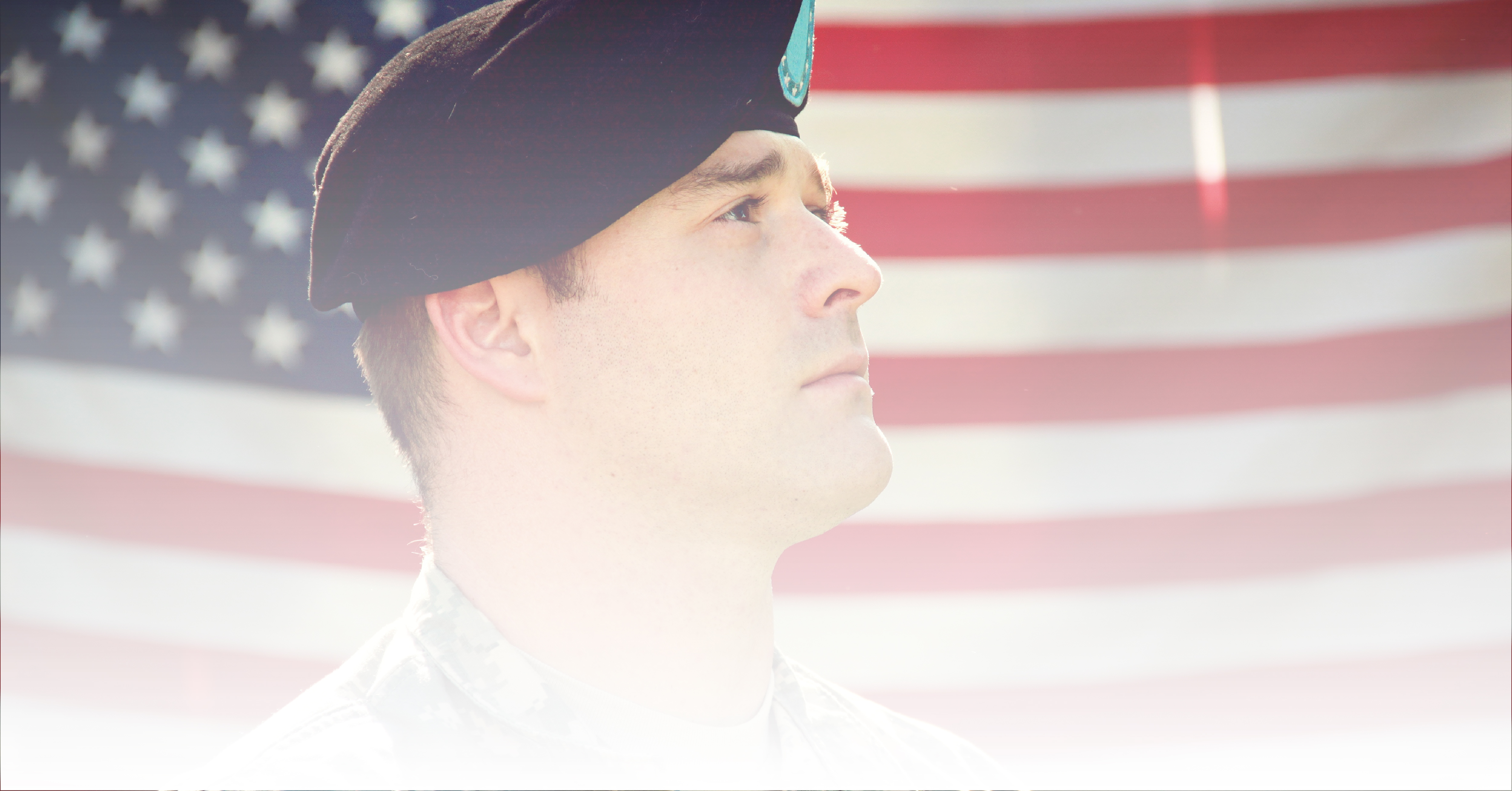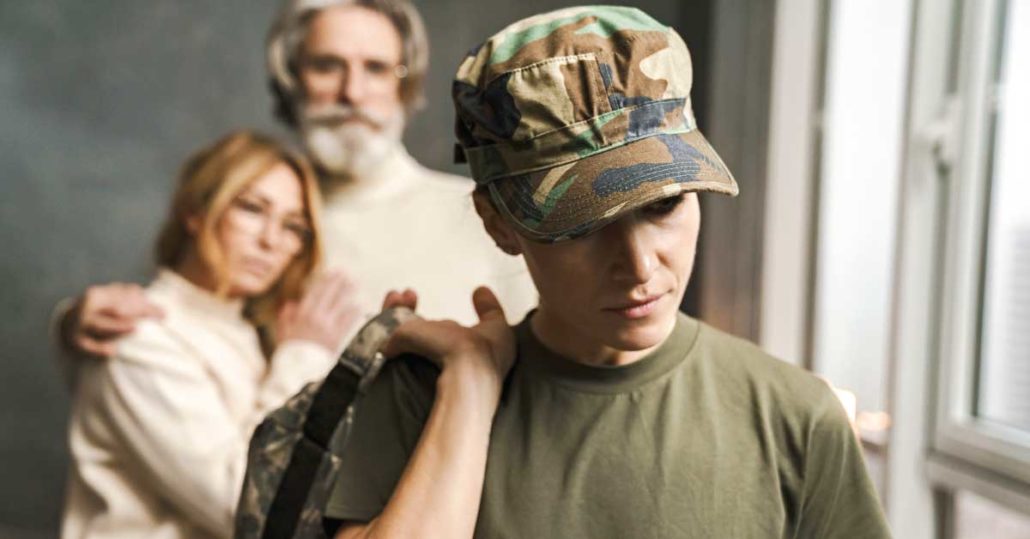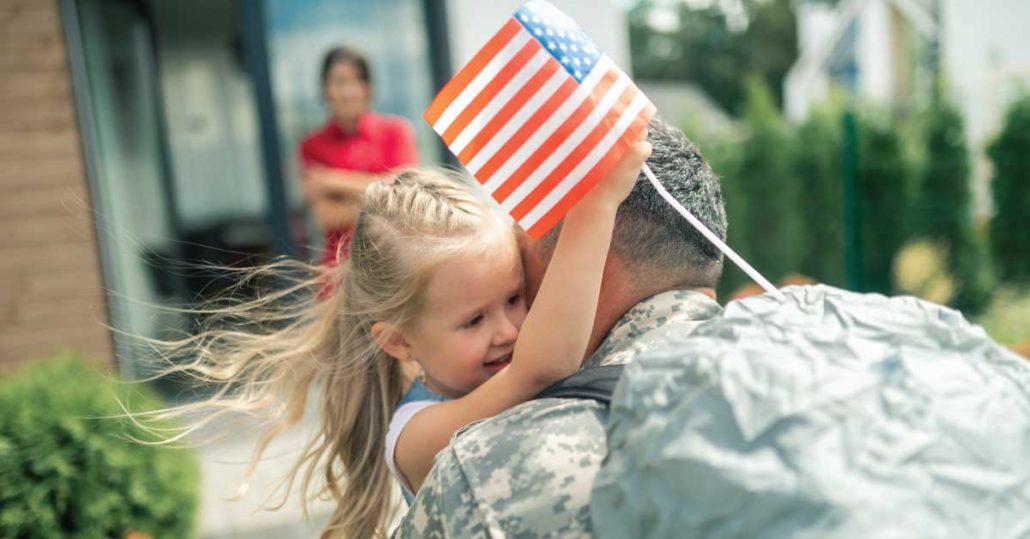
Military Reserves
By Diane Crosby
Not enough praise can be heaped upon those men, women and families who dedicate their lives to full-time military service. The demands are enormous and can sadly require the ultimate sacrifice. Full-time military families are the backbone of our country.
We don’t often hear much about the rest of the military. Those who sign up for the military reserves have a lifestyle that is unique, straddling two completely different worlds. Service can mean a weekend a month with a couple of weeks in the summer, while working in a day-to-day career just like any other American. Suddenly, a reservist may be called to active duty to a base down the road or a war zone across the globe.
I grew up one of two daughters of a reservist. Our father had been a proud member of the United States Marine Corps in World War II, serving much of his time in China. Here and there we had relics of his service, including exotic items he had purchased overseas. Early on, we learned to stand for the Marine’s Hymn. Later he joined the Air Force reserve because a base was nearby. He worked a weekend a month there. Most of the time he spent the nights, so we turned those weekends into “girl” times. In our day-to-day lives, though, our dad worked for a bank or sold cars. Life seemed normal enough.
I was seven when the phone call came. In my child’s memory it was the middle of the night. Perhaps, it was not. I do remember my parents speaking in hushed tones. This was the Cuban Missile Crisis; Daddy was to report for active duty. Our daily lives did not change as much as I feared. Our dad still went off to work nearby, only he wore a uniform. We were truly fortunate in that regard. The same occurred a few years later, this time due to the Pueblo incident in Korea.
To us young children, our dad’s uniform and accessories were novelties. We would enter his room and try on oversized hats and coats. Instead of playing dress up with our mom’s clothes, we donned our dad’s. He taught us the proper way to salute, which we mimicked in the mirror, and we marched around the house.
With our father working at a base close by, we found ourselves going there more often when he was called up. We would use the base doctor, which was free but required a long day of waiting. Some of those memories are vague, but I do recall my dad having a friend at the base golf course. We visited the pro shop now and then, and I remember sitting at the pro’s giant metal desk. We were equal parts thrilled and scared when we had opportunities to watch the Thunderbirds’ air show.
While the U.S. was not officially at war during either of these two active-duty periods, servicemembers were still in danger around the world. It was my father’s responsibility at times to deliver the tragic news to families that a loved one was lost. These visits take a toll on those who must handle them.
We moved due to civilian banking work, and our father once again switched military branches to be close to home. This last time, he was in the Georgia National Guard. He was nearing middle age then, and the summer training was brutal in the sweltering South Georgia heat and humidity. He laughingly called them his “campouts.” Reservists must take time off their regular jobs to train, sometimes using vacation days. It is no vacation!
Not all reservists spend their active-duty days near home. When my brother-in-law joined the family, we gained a fourth branch of the military. He had been full-time Navy, then changed to reserve before he married my sister. A while passed before he was called up to active duty, once in the Mediterranean, the second tour to Bagdad. My sister experienced what so many career military spouses do. She was alone, working, and raising a small child. To this day, she has incredible admiration for those families who are full-time military.
When reservists are called up, they may temporarily leave jobs and careers behind. That workplace has a duty to save a comparable position for when the reservist returns; in the meantime, there is a hole in its workforce. If the reservist’s regular job is essential, the employer will have to plan to cover it while he or she is away.
Still, reservists do their chores willingly, voluntarily. Once a reservist reaches retirement, there are many rewards, just as there are for full-time military. The retiree and spouse gain access to base amenities, such as the commissary, PX and pharmacy, even if the retiree dies. The insurance afforded retired reservists and their spouses is extraordinary. Retirement pay is issued at the appropriate time, and the reservists and spouses may be eligible for VA assistance, depending on medical needs and qualifications.
My father had an undying love for our country. With or without the benefits, he would have proudly sacrificed many things for the Red, White, and Blue. However, the prospect of leaving our mom with money-saving benefits did motivate him. He died at 89, always a Marine at heart, but grateful for the years as an Air Force and an Army reservist. At 92, our mom still drives herself to the base, picks up prescriptions, and shops at the commissary. Our father’s persistence and dedication has given her a lifestyle she can manage.
Timewise, our dad’s service in the reserves was not overly demanding on our family. For many reservists, it is extremely so. We did, however, retain the family military culture. My parents regularly visited Parris Island. During his hospice time at home, a representative of the Marine Corps came to Daddy’s bedside and spoke at length with his fellow Corps member. At his funeral, Taps played, and my mother was handed the precisely folded flag.
Of our family, I am the only one without military ties in my own immediate household. Still, the pride runs deep. I see our dad in every American celebration. Every time familiar hymns begin, “From the halls of Montezuma to the shores of Tripoli,” “Off we go into the wild blue yonder,” or “March along, sing our song,” my heart flutters. In honor of my brother-in-law, “Anchors Aweigh” does it, too.



